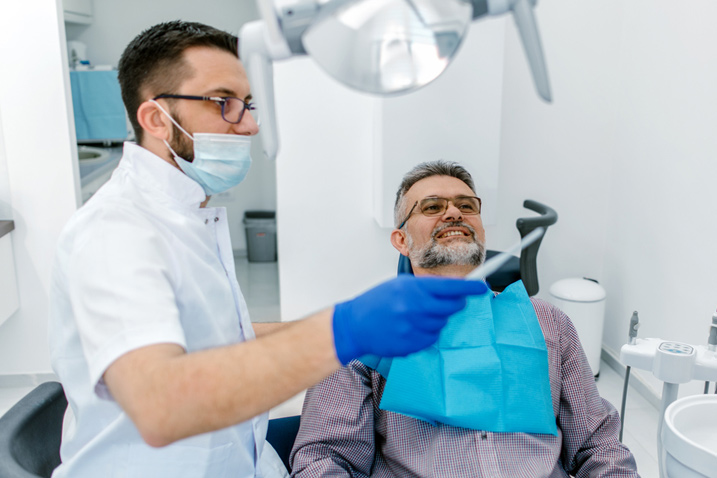
Both type 1 and type 2 diabetes can increase your risk of gum disease and infection, meaning diabetics should pay special attention to oral health care.
Diabetes can affect nearly every part of your body, and your mouth is no exception. If left untreated, diabetes can alter your teeth, gums, and saliva. Fortunately, there are ways to control your oral hygiene and minimize your chances of dental problems caused by diabetes.
Diabetes is an autoimmune condition that affects approximately 9.3% of the American population, according to the American Dental Association (ADA). Although diabetes is common, its health risks should not be taken lightly. Diabetes comes in two varieties, each of which has a unique presentation. Type 1 diabetes usually manifests during childhood when the child’s pancreas produces little to no insulin. Type 2 diabetes occurs later in life. Your body gradually loses its ability to respond to insulin or your pancreas loses its ability to produce it.
Dental Conditions that may Worsen with Diabetes
Although both type 1 and type 2 diabetes require unique treatment regimens, they affect your teeth in the same ways. As a result of this similarity, we will discuss the dental effects of both types of diabetes together. Here are the most common dental conditions associated with diabetes:
- Cavities. Cavities are the initial stage of tooth decay, and they occur when plaque eats away at your enamel. Plaque contains bacteria that becomes particularly corrosive when fueled with sugar. As a result, high blood sugar can lead to cavities. To prevent cavities, make sure you maintain good dental hygiene: brush your teeth twice a day, floss your teeth daily, and limit your consumption of starchy or sugary foods.
- Dry Mouth. Chronic dry mouth (also known as xerostomia) is a common result of diabetes. Dry mouth can increase your risk of tooth decay and gum disease. Although the cause for diabetes-induced dry mouth is still unknown, we do know how to control diabetes-induced dry mouth. Make sure to stay hydrated, and minimize intake of substances that dehydrate your mouth — especially alcohol, tobacco, and caffeine.
- Mouth Injuries. Because diabetes is an autoimmune disease, it can greatly reduce your ability to heal from injuries and fight off infections. Because of this, small scrapes and cuts in your mouth pose more of a threat to your oral health than they do in non-diabetic patients. Make sure to stay vigilant about any potential mouth injuries, and to visit your dentist immediately if you get an injury in your mouth.
- Gum Disease. Gum disease is a result of hardened plaque — called tartar — building up along your gum line. Because diabetes can increase the amount of bacteria in your mouth, people with diabetes are at higher risk of developing tartar and consequently, gum disease. Early-stage gum disease is called gingivitis, which occurs when tartar irritates your gum lining, causing irritation and bleeding. Late-stage gum disease is called periodontitis, which can deteriorate your gum line and jawbone. The key to preventing gum disease is preventing plaque buildup, so be sure to maintain a good dental health routine.
- Thrush. Thrush is a fungal infection that affects your gums. It can manifest in painful red splotches in your gums, and it is often accompanied by dry mouth. To prevent thrush and other oral health problems, ensure that you maintain good dental health habits.
Take Care of Your Dental Health
Autoimmune deficiencies, lack of saliva, and high blood sugar give people with diabetes a heightened risk of dental health problems. Fortunately, most dental health issues associated with diabetes can be prevented with a strong daily dental health routine. If you have type 1 or type 2 diabetes, make sure your dentist knows about your condition, and schedule a teeth cleaning twice a year.
If you are concerned you may be developing a diabetes-related dental health condition, call a dentist right away. For patients in and around Denver, visit us at Espire — with patient-centered clinics across the Denver Metro, our experienced doctors can help make your smile healthy and bright.


